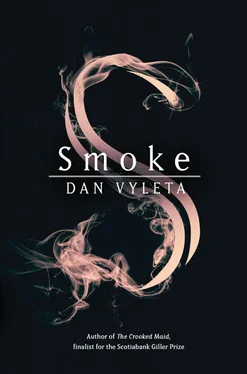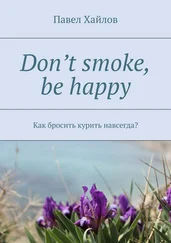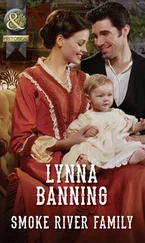When Lady Naylor, shaken by a spasm of pain, does not answer at once, Charlie does so for her, looking down at the murky mess he scooped out of the pool.
“The Soot in the sewers is not dark enough. Even now that it is filtered! For whatever it is you are planning, only murderers’ Soot will do.”
Lady Naylor shivers, masters herself. “Not just murderers’ Soot, Charlie. It’s much purer than that: the darkest passions of the heart, with all humanity removed. I had to pick through my harvests grain by grain. Not ten percent was usable. It’s the blackest Soot ever assembled. In bulk it becomes liquid.”
Charlie watches Thomas reel at this, form fists. “You gathered an imperial gallon. You said that just now. But the bottle was not much more than half that. Julius took the rest?”
She nods, holds Thomas’s gaze. It is his turn to shiver.
“It explains what he has become. And I.”
Thomas says it and sighs, his anger exhausted, leaving him younger and tired. It’s Charlie who presses on.
“I still don’t understand, Lady Naylor. Why? What were you planning? Why build these pools? None of it makes sense.”
She slumps, seems to drift into her pain, then jerks out of it with sudden animation.
“I can show you, Charlie. Give me Mowgli’s blood. Just a drop. You will see for yourself.”
ф
It’s a trick. It must be, for Lady Naylor is evil, wants to drown the world in bloody revolution.
Or is she? Looking at her — pale, beat-up, courageous — Charlie finds it hard to believe that her ambitions were so crude, and so prosaic. That, and there is the matter of her sadness. “I have already failed,” she keeps saying into their hesitation. “Nothing can change that. So please. One drop. I just want to see.”
They look to one another, Thomas, Charlie, and Livia, weighing their distrust. At long last Livia takes the beaker out of Thomas’s hand. She turns to her mother, her face savage.
“Tell me what to do,” she whispers. And: “Don’t you dare lie to me, Mother. Not this time.”
Lady Naylor nods, revived by expectation.
“The bucket first,” she instructs her daughter. “Just one drop.”
“I know what will happen. Sebastian showed me.”
All the same Livia kneels down next to the bucket, unstoppers the glass, and cautiously pours a single drop over its lip. It drops from sight, into the dark of the bucket. The next moment Livia scrambles away. They wait, one breath, two breaths, five.
Nothing happens.
“Soot is slow to quicken. The lighter it is, the harder it is. Sebastian filtered it, the city’s vice, the darkest Soot here, getting lighter pool by pool. Decades upon decades of London’s anger and plight. If we carried down the vats of solvent from the factory above we might be able to quicken some fraction of it. But with Mowgli’s blood, it takes a purer sort of Soot to initiate the reaction.”
Lady Naylor tries to sit up, winces, points at an ink-black stain three feet from her hip, still clinging to a shard of glass like honey to a spoon. It is so very dark it looks like a hole cut in the ground.
“Now try it there, Livia. Please.”
Again Livia stares at her with great ferocity; again she finds herself compelled by curiosity to walk to the smear and tilt the beaker. Charlie walks over with her, steadies her hand.
“I need to know,” Livia says as though in apology. “What she was up to. Whether she is telling the truth.”
Charlie nods, catches Thomas’s eye, watches the drop fall into the Soot as though into a void.
What happens next is hard to make sense of. Livia tried describing it to them, but it is one thing to hear of a firework and quite another to see it. For a moment all is still. Then the Soot ignites in a plume of vile black. They recoil, watch it spread like a miniature bushfire, setting alight miniscule deposits of Soot long grown into the ground: threads of Smoke scurrying like beetles across the floor, no longer just black but many hued; clambering up the legs of the table, diving into the gaps between the worn brick; jumping into the bucket to raise a rainbow-coloured flag of Smoke. Here and there other droplets of pure Soot ignite, each setting off chain reactions of their own, volatile, then dead within a yard. They stand amongst this crazed resurrection, imbibing its flavours, soon answering with their own native Smokes, joy, anger, fear, and pangs of desire tangling them up within their webs. It is like a hushed conversation conducted by their bodies: shameless, honest, intimate, bypassing both brains and tongues. It is a conversation not free of anger and want; but also rich, immediate, generous: a brazen sharing of the self. In the midst of all this, unmoved, unmovable, stands Grendel, comforting the child strapped to his chest. Never before has Charlie been struck by his isolation as much as now. For just a moment, still smoking, he pities the man with all his heart.
ф
It takes several minutes for the last of the Smoke to die down. Two or three times they think it dead, when a step from them a new plume — pink, yellow, brown — rises and sets off another network of threads. The Smoke runs out of energy, subsides, then jumps back to life ten inches hither; makes a half-yard’s gain only to burn itself out. In the end all Smoke is gone, and Soot rains down on them under the flickering light of the bulbs. When Charlie turns to Lady Naylor he sees that she is crying.
“There,” she says. “The end of our dreams. It took me three years to collect that Soot; many months to refine it. Mowgli’s blood will soon lose its properties. If we had been able to access my lab, we could have preserved it in its present state. But here — we don’t have the tools. We could find another child, I suppose, another innocent. But there may be none left.” She speaks to Charlie then, who is standing closest and has bent to listen; speaks confidentially and sadly, eloquent in her defeat. “So it will be your father’s world, Charlie, or else Renfrew’s. Either the smug hypocrisy of the rich or the pitiless straitjacket of self-surveillance. Which one will you choose?”
But Charlie only looks at her blankly.
“What dream exactly, Lady Naylor? What in the hell have you been cooking up down here?”
ф
But in truth Charlie already knows, or at any rate he has guessed it. He looks to Livia as he begins putting it in words; looks to Thomas, each of them chewing the same thought.
“Most Soot is slow to quicken. It’s like wet fire logs, impossible to light. Only dark Soot will catch. So you collected the darkest Soot that you could find. A full gallon of it, just to be safe.” He gestures to where the bottle of Soot stood on the table, waits until he has registered Lady Naylor’s nod of confirmation. “But the point is not merely to quicken black Soot. It’s to change it, make it volatile. That’s where Mowgli’s blood comes in. It does something special, something the stuff used on cigarettes does not do. It starts a chain reaction. The Quickening spreading like ripples around a dropped pebble. Self-perpetuating, on and on: the Soot in the bottle acting as kindling , setting alight the Soot in the darkest pool, which in turn will set alight the pool farther down, and on and on, until even the weakest Soot has caught and carries the spark. But where will it go, all the Smoke in this chamber? There are no chimneys after all, nothing to connect it to the city.” He pauses, pictures again the map Thomas drew, the intricate web of lines, all connected, all leading in one final direction. “It’s not just a filtration system, is it, Lady Naylor? It’s a fuse! The pools lead back to the sewers. And the sewers lead back to the river.” Charlie swallows, thinks it through. “So the Thames would have caught; it is filthy with Soot. As are its tributaries; the groundwater and wells. Perhaps the ocean itself would have started smoking.”
Читать дальше












